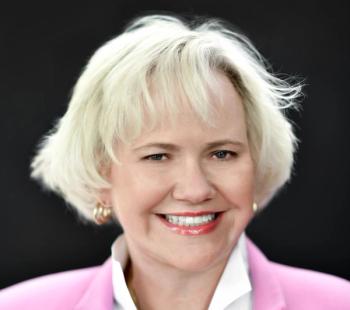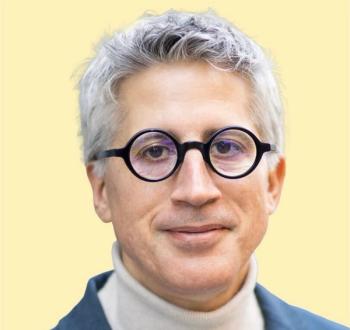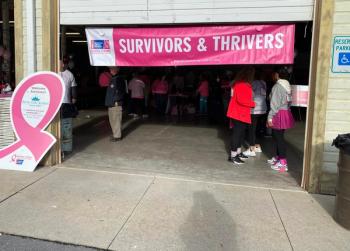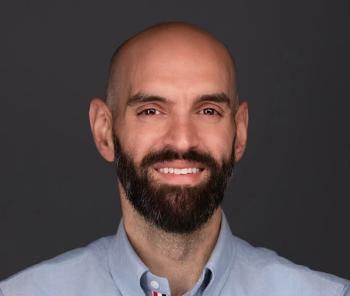
The case for the ‘accredited patient’ | Viewpoint
In finance, we recognize that investors can make high-risk, high-reward decisions. It’s time to extend that principle to healthcare.
As the mayor of Lancaster, California, I see the national mental health crisis playing out on my streets every single day.
Veterans with untreated PTSD. Families watching loved ones unravel from neurodegenerative diseases. Shelters are overwhelmed—not by people refusing help, but by people who can’t access it because the system forces them to wait for treatments that already exist.
The tragedy isn’t just the suffering. It’s the timeline.
Every day, more than 17 U.S. veterans die by suicide, many of them battling PTSD for which no approved treatment has worked. Earlier this year, two Phase III clinical trials showed that MDMA-assisted therapy could dramatically reduce PTSD symptoms. Veterans’ groups rallied. Lawmakers pushed. The science was strong enough that the FDA had already granted the therapy “breakthrough” status back in 2017.
And then, this summer, the FDA said no.
Despite years of promising data, the agency rejected the application—citing concerns over trial design, methodology, and the difficulty of “blinding” patients to MDMA’s effects. A treatment that had already changed lives was sent back to the drawing board. For many, there will be no time left when it returns.
We don’t accept this kind of delay in any other domain of American life. So why do we accept it in medicine?
In finance, we recognize that certain individuals—accredited investors—can make high-risk, high-reward decisions based on their knowledge, experience, or financial means. We don’t ban risky investments. We give people the right to opt in.
It’s time to extend that principle to healthcare.
The Accredited Patient
An “accredited patient” would be someone facing a life-threatening or degenerative condition—like PTSD, ALS, or Parkinson’s—who meets strict eligibility standards:
- Demonstrated understanding of risks and benefits;
- Fully informed consent, documented and reviewed;
- Ongoing medical oversight in a monitored clinical setting
This isn’t “Right to Try 2.0.” That law, passed in 2018, was a symbolic gesture. The accredited patient model is structural. It’s auditable. It preserves trial integrity while giving qualified patients a parallel track to access treatments that are safe—but not yet approved.
This model wouldn’t replace the FDA’s process. It would flank it—with the same care, more speed, and most importantly, more respect for patient agency.
Why this isn’t just about PTSD
The FDA’s rejection of MDMA therapy is one example. But it’s far from the only one.
Across the five most recognized and feared diseases in America, there are dozens of treatments stalled in Phase III, many of them showing strong early promise.
Parkinson’s Disease — It affects nearly 1 million Americans. Some treatments have shown early efficacy in restoring motor function—but are still years from approval.
Alzheimer’s / Dementia — Claims over 120,000 lives annually. Multiple antibody therapies and neuroinflammation blockers are in Phase II and III, yet remain inaccessible to patients whose decline is rapid and irreversible.
Cancer — It kills over 600,000 Americans each year. Despite accelerated pathways, many next-gen immunotherapies and tumor-specific vaccines remain in regulatory limbo due to trial design, not clinical danger.
Heart Disease — The country’s #1 killer. Innovative lipid-lowering agents and gene-editing treatments for cholesterol management have advanced to late-stage trials—but are locked behind multi-year approval barriers.
ALS — Terminal, fast-moving, and fatal. Some drugs show potential, but often face delays over statistical conservatism, not medical breakthroughs.
In total, there are over 42,000 active Phase III trials globally. Many target the exact conditions that claim the most lives in this country.
Yet patients die while waiting—not for science, but for bureaucracy to catch up.
Hope delayed Is hope denied
We trust Americans to make complex decisions every day—about money, about medical care, even about ending treatment. But when it comes to trying an unapproved therapy that could extend or improve their lives, we revoke that autonomy.
That’s not about safety. That’s control.
The accredited patient model wouldn’t open the floodgates. It would open a door—for those who are informed, monitored, and out of time.
We already have the trials. We already have the data. We already have the patients.
What we don’t have is a system that trusts them to choose.
R. Rex Parris is the mayor of Lancaster, California, and an advocate for patient autonomy and health innovation.






















































































